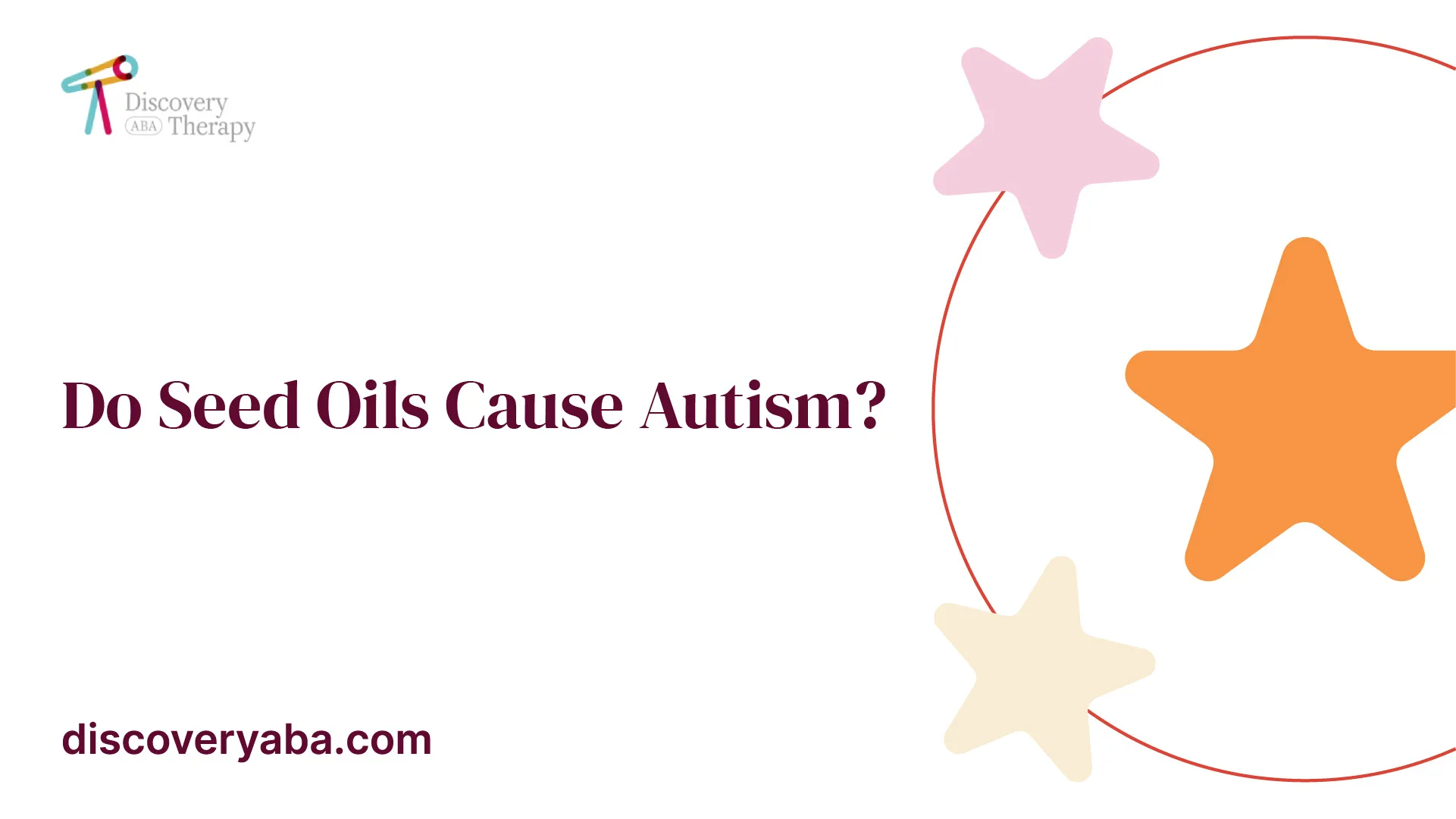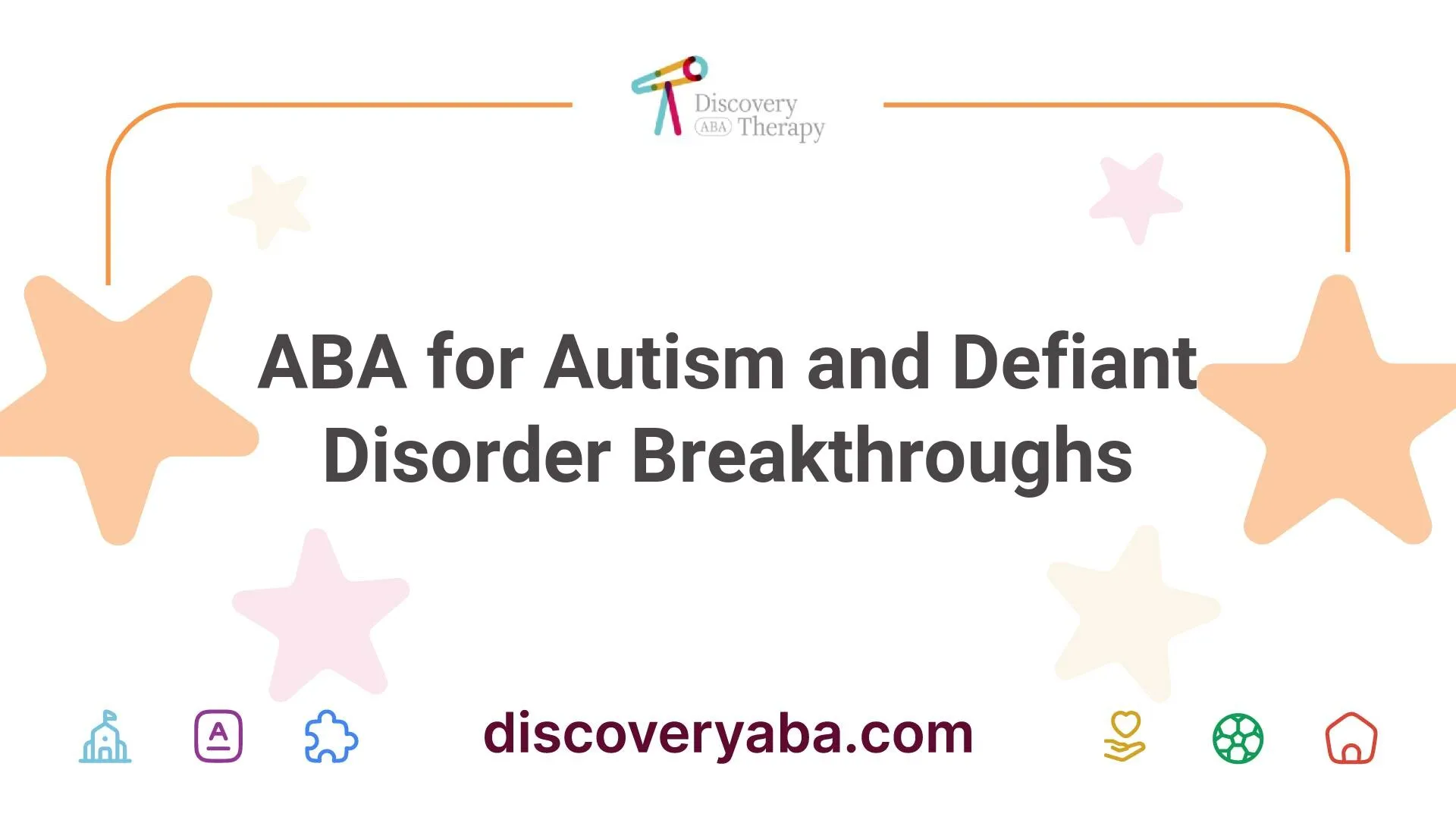Do Seed Oils Cause Autism?
Explore the connection between seed oils and autism in a down-to-earth discussion. Uncover the facts, dispel myths, and gain a better understanding of the relationship, if any, between seed oils and autism.

Understanding Autism
Autism is a neurodevelopmental disorder characterized by persistent challenges in social interaction, communication, and repetitive behaviors. It is a spectrum disorder, meaning that it affects individuals in different ways and to varying degrees. Understanding the nature of autism and the factors that contribute to its development is crucial in addressing the needs of individuals with autism.
What is Autism?
Autism, also known as Autism Spectrum Disorder (ASD), is a complex condition that affects how a person perceives the world and interacts with others. It typically becomes evident in early childhood, often before the age of three. Common symptoms of autism include:
- Difficulty with social interactions, such as making eye contact, understanding nonverbal cues, and developing relationships.
- Challenges in communication, which can include delayed or limited speech, difficulty initiating or sustaining conversations, and repetitive or unusual speech patterns.
- Engaging in repetitive behaviors or having restricted interests, such as intense focus on specific objects or topics, adherence to routines, and repetitive movements like hand flapping or rocking.
Autism is a highly individualized condition, and individuals with autism may exhibit a wide range of strengths, challenges, and abilities. Early intervention and ongoing support can greatly enhance the quality of life for individuals with autism.

Causes and Factors
The exact cause of autism is still not fully understood, and it is believed to result from a combination of genetic and environmental factors. Research has shown that there is a strong genetic component to autism, with certain genes being associated with an increased risk of developing the condition. Not all individuals with these genetic variations will develop autism.
In addition to genetic factors, environmental influences may also play a role in the development of autism. While there is ongoing research in this area, there is currently no conclusive evidence linking seed oils to the development of autism. The topic of the potential link between seed oils and autism is a subject of debate and scientific investigation.
Understanding the complexities of autism and the factors that contribute to its development is an ongoing area of research. It is important to consult with healthcare professionals and specialists who can provide personalized guidance and support for individuals with autism and their caregivers. By gaining a comprehensive understanding of autism, we can work towards creating a more inclusive and supportive environment for individuals on the autism spectrum.
The Seed Oil Debate
The potential link between seed oils and autism has sparked a controversial discussion among researchers, healthcare professionals, and the autism community. This section will delve into the controversy surrounding this topic and explore scientific studies and research findings.
Exploring the Controversy
The debate surrounding the relationship between seed oils and autism revolves around the role of omega-6 fatty acids, which are abundant in these oils. Some researchers and individuals believe that the consumption of seed oils, which are high in omega-6 fatty acids, may contribute to the development or exacerbation of autism symptoms. However, this theory remains a topic of contention and requires further investigation.
Scientific Studies and Research Findings
Numerous scientific studies have been conducted to examine the potential link between seed oils and autism. These studies have yielded mixed results, with some suggesting a possible association while others contradicting such a link.
Some studies have proposed that the high levels of omega-6 fatty acids found in seed oils may lead to increased inflammation in the body, potentially impacting neurodevelopment in individuals with autism. The evidence supporting this connection is limited and requires more comprehensive research.
On the other hand, studies contradicting the link between seed oils and autism argue that there is insufficient evidence to establish a causal relationship. They emphasize the need for well-designed, large-scale studies to determine the true impact of seed oil consumption on autism prevalence and severity.
To better understand the complexities of the seed oil debate and make informed decisions, it is crucial for individuals, especially those with autism and their caregivers, to consult with healthcare professionals who specialize in autism and nutrition. These professionals can provide personalized guidance based on individual sensitivities, dietary needs, and overall health considerations.
While the discussion around the link between seed oils and autism continues, it is important to maintain a balanced diet and nutrition for individuals with autism. Incorporating a variety of whole foods, including fruits, vegetables, lean proteins, and healthy fats, is essential for overall well-being. It is always advisable to focus on a holistic approach to health and consider individual sensitivities when making dietary choices.
Overall, the potential connection between seed oils and autism is a complex and evolving topic. Further research is needed to fully understand the role, if any, of seed oils in the development or management of autism. It is crucial to rely on credible sources, consult healthcare professionals, and stay updated on the latest research findings to make informed decisions regarding dietary choices for individuals with autism.
The Potential Link
As the debate surrounding the potential link between seed oils and autism continues, researchers have been exploring various factors that could contribute to the development and severity of autism spectrum disorder (ASD). Two areas of interest that have emerged are the role of seed oils in inflammation and their impact on gut health.
Seed Oils and Inflammation
Inflammation is a natural response by the body to protect and heal itself. However, chronic inflammation can have negative effects on overall health. Some studies suggest that the consumption of certain seed oils, particularly those high in omega-6 fatty acids, may contribute to increased inflammation in the body.
Omega-6 fatty acids are essential fats that play a role in various bodily functions. While they are necessary for our health, an imbalance between omega-6 and omega-3 fatty acids can potentially lead to inflammation. Seed oils such as corn oil, soybean oil, and sunflower oil are commonly used in processed foods and have a high omega-6 fatty acid content.
The relationship between seed oils, inflammation, and autism is still being investigated. Some studies have suggested a potential connection, while others have not found a significant association. Further research is needed to understand the complex interplay between seed oil consumption, inflammation, and autism.
Gut Health and Autism
The gut-brain connection has gained attention in recent years, with emerging evidence suggesting that disruptions in gut health may be associated with autism. The gut microbiome, a complex community of microorganisms in our digestive system, plays a crucial role in various aspects of our health, including immune function and brain development.
Research has shown that individuals with autism may have an altered gut microbiome compared to neurotypical individuals. Some studies have explored the potential role of seed oils in disrupting the gut microbiome and contributing to the development or exacerbation of autism symptoms. However, the exact mechanisms and the impact of seed oils on gut health in relation to autism are still under investigation.
It is important to approach the potential link between seed oils, gut health, and autism with caution. While there is growing interest in this area of research, more studies are needed to establish a clearer understanding of the complex relationship between seed oils, gut health, and autism.
As the scientific community continues to investigate the potential link between seed oils and autism, it is crucial to consult with healthcare professionals and specialists who can provide personalized recommendations and guidance. Additionally, maintaining a balanced diet that includes a variety of nutrient-rich foods is essential for overall health and well-being. It is always important to consider individual sensitivities and preferences when making dietary choices.
Examining the Evidence
To better understand the potential link between seed oils and autism, it is important to examine the existing evidence. Scientific studies have explored this topic, with some suggesting a possible connection, while others contradicting it.
Studies Suggesting a Link
Several studies have suggested a potential link between the consumption of seed oils and autism. These studies have explored the role of omega-6 fatty acids, which are abundant in many seed oils, in neurodevelopmental disorders such as autism. Omega-6 fatty acids are essential fats that play a crucial role in the body's inflammatory response.
A study published in the journal Nutritional Neuroscience found that increased consumption of omega-6 fatty acids, specifically linoleic acid found in seed oils, was associated with a higher prevalence of autism spectrum disorder (ASD). This study was based on observational data and cannot establish a cause-and-effect relationship.
Another study published in Molecular Autism investigated the potential impact of seed oil consumption on autism-related behaviors in animal models. The study found that mice fed a diet high in omega-6 fatty acids showed increased repetitive behaviors and impaired sociability, both of which are characteristics associated with autism. These findings suggest a possible link between seed oil consumption and autism-like behaviors, but further research is needed to validate these results in humans.
Studies Contradicting a Link
On the other hand, there are studies that contradict the notion of a direct link between seed oil consumption and autism. A study published in the Journal of Autism and Developmental Disorders examined the dietary patterns of children with autism and found no significant association between seed oil consumption and autism risk. The study concluded that other dietary factors, rather than seed oils alone, may play a more significant role in the development of autism.
It is worth noting that the existing research on the connection between seed oils and autism is still limited and inconclusive. More robust studies, including randomized controlled trials and larger population-based studies, are needed to establish a clearer understanding of this potential link.
While the evidence is mixed, it is important to approach this topic with caution and consult with healthcare professionals for personalized advice. They can provide guidance based on individual sensitivities and dietary needs. Additionally, maintaining a balanced diet that includes a variety of healthy fats from different sources, such as fish, nuts, and seeds, is recommended.
By examining the available evidence, individuals can make informed decisions regarding their dietary choices and seek personalized approaches to support overall well-being.
Considerations and Recommendations
When it comes to the potential link between seed oils and autism, it's important to approach the topic with careful consideration and seek guidance from healthcare professionals. While the research surrounding this topic is ongoing and inconclusive, there are some recommendations that can be taken into account.
Consulting with Healthcare Professionals
If you have concerns about the relationship between seed oils and autism, it is recommended to consult with healthcare professionals who specialize in autism and nutrition. They can provide personalized advice based on your unique situation and guide you in making informed decisions about your diet and lifestyle. They may also recommend additional assessments or tests to better understand any potential sensitivities or dietary needs.
Balanced Diet and Nutrition
Maintaining a balanced and nutritious diet is crucial for overall health and well-being, regardless of any potential link between seed oils and autism. Focus on consuming a variety of whole foods, including fruits, vegetables, lean proteins, and whole grains. Incorporate healthy fats from sources such as avocados, nuts, and seeds. It is also advisable to limit the consumption of processed foods and sugary beverages.
A balanced diet rich in nutrients provides the foundation for optimal physical and mental health.
Individual Sensitivities and Personalized Approach
It's essential to recognize that individuals with autism may have unique sensitivities and dietary needs. Some individuals may be more sensitive to certain foods or food additives, and this can vary from person to person. It's important to pay attention to any changes in behavior or symptoms that may be related to diet.
A personalized approach to nutrition, taking into account individual sensitivities and preferences, may be beneficial. Working closely with healthcare professionals, such as dietitians or nutritionists, can help in developing a tailored plan that addresses specific dietary concerns and promotes overall well-being.
While the potential link between seed oils and autism is still under investigation, it's important to approach the topic with an open mind and rely on evidence-based guidance. Remember to always consult with healthcare professionals who can provide personalized recommendations based on your specific needs and circumstances. By focusing on a balanced diet and individualized care, you can support the overall health and well-being of individuals with autism.
Summary
In wrapping up this exploration into the question of whether seed oils cause autism, it's important to approach the topic with a balanced perspective. While some studies have suggested potential links between certain dietary factors and autism, the scientific community is still unraveling the complex web of factors contributing to this condition.
As parents, caregivers, and individuals interested in the well-being of those with autism, it's crucial to make informed choices. Consider consulting with healthcare professionals, nutritionists, and specialists who can provide personalized guidance based on your unique circumstances.
Remember, the journey to understanding autism is ongoing, and there is much yet to be discovered. Let's approach these discussions with empathy, recognizing that each person's experience is unique. Ultimately, our collective goal is to create an environment that supports and uplifts individuals with autism, fostering understanding and acceptance.
Sources
Does Your Child Have An Autism Diagnosis?
Learn More About How ABA Therapy Can Help
Find More Articles
Contact us
North Carolina, Tennessee, Nevada, New Jersey, Utah, Virginia
New Hampshire, Maine
Massachusetts, Indiana, Arizona, Georgia
.avif)















.jpeg)












































.jpeg)









.jpeg)
.jpeg)



.jpeg)
















.jpeg)
.jpeg)



.jpeg)
.jpeg)


